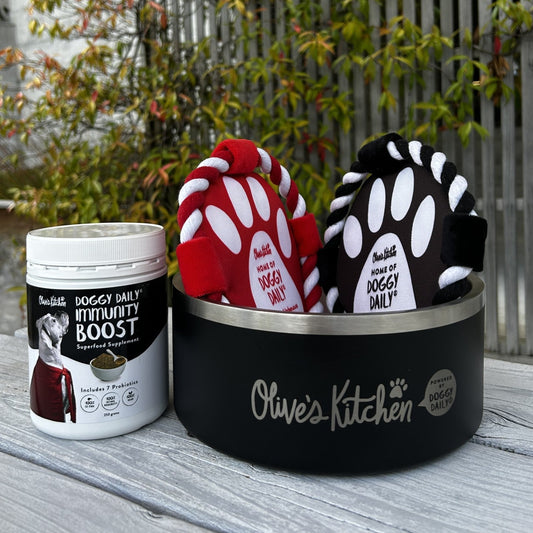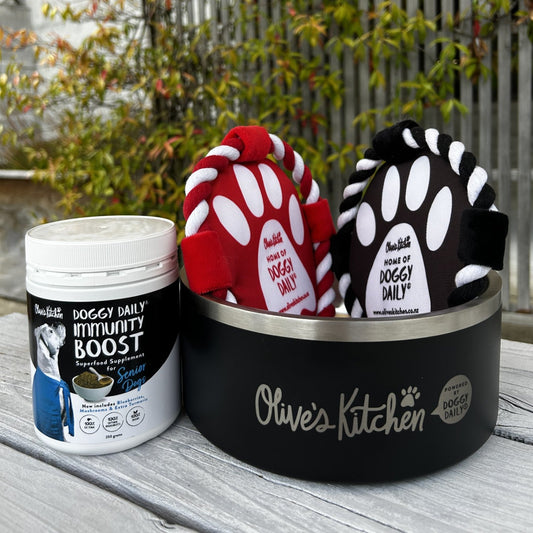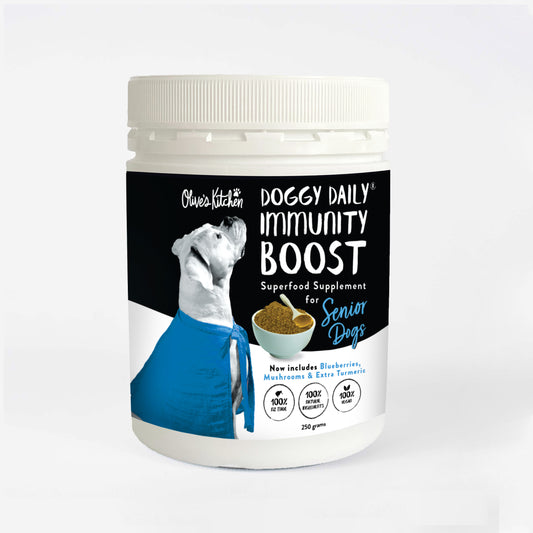One of the most frustrating and hard to beat problems that a pet owner can face these days is allergies. If you have a dog or cat with a persistent case of the itches then read on because there are a number of options that can be explored that will give your fur baby some all-natural relief!
But first, some interesting facts
In humans, the primary area that suffers when an allergic reaction takes hold is the respiratory tract. We sneeze, cough, develop runny eyes and sometimes even have trouble breathing if the reaction is severe enough. In dogs, however, the primary target area is their skin and hence they scratch, get hives and, at the most severe end of the scale, can even develop life-threatening secondary skin infections.
So what are the primary causes of allergies in our dogs?
The most common allergens for dogs are fleas, food, dust and dust mites, and "inhalant" allergens (e.g. pollen, grass, trees, mould spores, etc). To make matters worse, often allergy-prone dogs can be allergic to multiple sources of allergens.
So how do you work out what your dog is allergic to?
It’s not easy but your dog's "itch pattern" is a good starting point for helping you to uncover the likely cause of their allergy.
For example
- Dog's with flea allergies tend to scratch over their tail head, on their back
- Dogs with food allergies tend to have itchy "ears and rears"
- Dogs suffering from inhalant allergens tend to gnaw on their feet more than other areas
What role does diet play in creating and treating allergies?
Food is often the problem and the solution to the plethora of food allergies that are present in both the human and the four-legged members of our household.
While working with your veterinarian is the gold standard for developing a truly hypoallergenic diet, there are a number of common pet food ingredients that you may wish to try excluding from their diet such as changing their protein source and avoiding corn and wheat. If you do commence a food trial with a hypoallergenic diet, it’s important to note that it needs to last for at least 8 weeks and absolutely no other food (i.e. no treats, no leftovers from the family meal) can pass their lips. You may also need to have a number of goes before you identify the culprit, for example, trialling some more novel protein sources like venison, rabbit or salmon.
Can allergies be cured or just treated?
The frustrating reality for many of our allergies is that they won’t usually go away altogether; we will just get better at identifying and avoiding the triggers and then when they do reoccur, get better at providing relief from the symptoms.
Are natural allergy remedies effective at treating symptoms?
In a word yes. The traditional method of treating pet allergies has been antihistamines and steroids which often either don’t appear to quite do the trick and/or have too many other side effects. If you are interested in trying a more natural approach, Olive’s Kitchen has a wonderful range of all-natural products that have been developed in conjunction with holistic veterinarians to choose from.
Starting from the inside out
At Olive’s Kitchen, we are whole food fanatics and believe ‘whole-heartedly’ in the principle that good food is medicine. Our super-natural nutritional supplement Doggy Daily will provide your dog or cat with a daily boost of superfoods that are missing from most modern diets.
All of our ingredients have been carefully selected with the support of holistic vets and include essential fatty acids, antioxidants such as turmeric and ginger and probiotics that not only help with allergy symptoms but also target some of the most common pet owner challenges:
- Reduce inflammation
- Advance gut health
- Boost immunity
- Promote healthy skin and coats
Click to learn more: The super-natural supplement for healthier, happier pets
All-natural healing solutions
To naturally relieve any persistent itching and/or skin issues associated with your pet’s allergies we have our Vet Love Naturally Range that includes soothing balms for skin, snouts, and paws and our scratch-free kit.
Click to learn more: Nature knows best when it comes to healing.
Finally, if your pet is experiencing more severe symptoms, then please contact your holistic veterinarian immediately.






